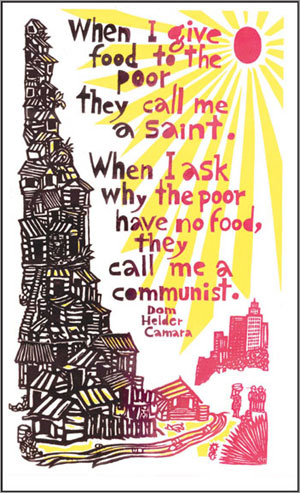 Pope Benedict’s Holy War Against Liberation Theology in South America: Pontiff and Conservative Church Face a Rollback
Pope Benedict’s Holy War Against Liberation Theology in South America: Pontiff and Conservative Church Face a RollbackNIKOLAS KOZLOFF, COHA Senior Research Fellow
Since its emergence, Liberation Theology has consistently mixed politics and religion. Its adherents have often been active in labor unions and left-wing political parties. Followers of Liberation Theology take inspiration from fallen martyrs like Archbishop Oscar Romero of El Salvador and Dorothy Mae Stang, an American-born nun who was murdered by ranching interests in Brazil.
During the 1980s and 1990s Benedict, then Cardinal Joseph Ratzinger, acted as John Paul II’s doctrinal czar. At the time, John Paul was in the midst of a fierce battle to silence prominent Church liberals. “This conception of Christ as a political figure, a revolutionary, as the subversive of Nazareth,” the Pontiff once said, “does not tally with the church’s catechism.” In 1983 the Pope wagged his finger at Sandinista government minister and Nicaraguan priest, Ernesto Cardenal on a trip to Managua, warning the latter to “straighten out the situation in your church.” Cardenal was one of the most prominent Liberation Theologians of the Sandinista era. Originally a liberal reformer, Ratzinger changed his tune once he became an integrant in the Vatican hierarchy.
As prefect of the Congregation for the Doctrine of the Faith, the Vatican’s doctrinal watchdog agency, Cardinal Ratzinger warned against the temptation to view Christianity in an exclusively political light. Liberation Theology, he once said, was dangerous as it fused “the Bible’s view of history with Marxist dialectics.” Calling Liberation Theology a “singular heresy,” Ratzinger went on the offensive. He blasted the new movement as a “fundamental threat” to the church and prohibited some of its leading proponents from speaking publicly.
No comments:
Post a Comment
Due to a high volume of spamming I have had to enable comment moderation. It may take a day to see your comment published. Respectful and thoughtful comments welcome